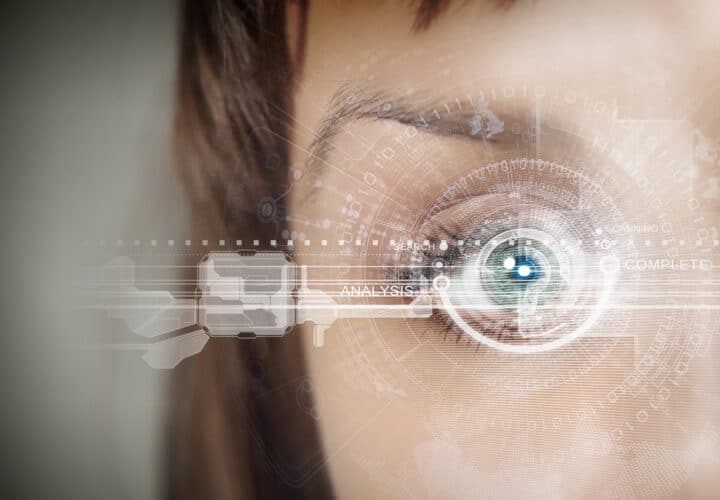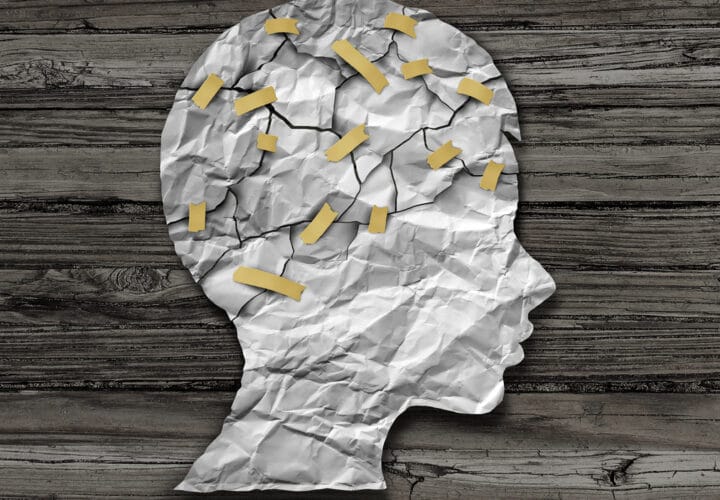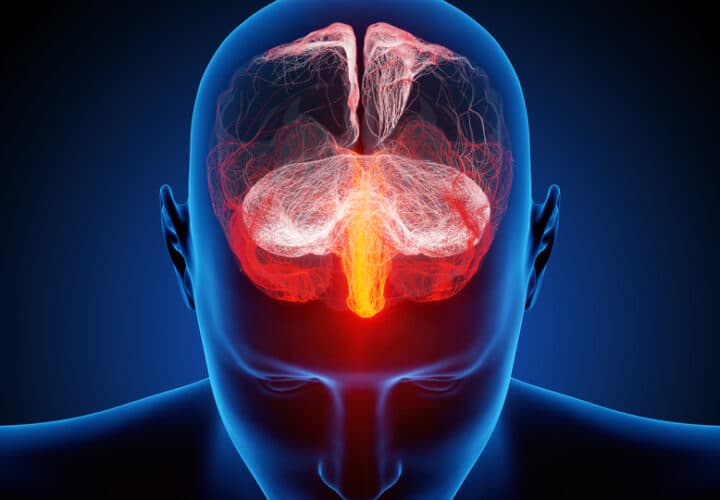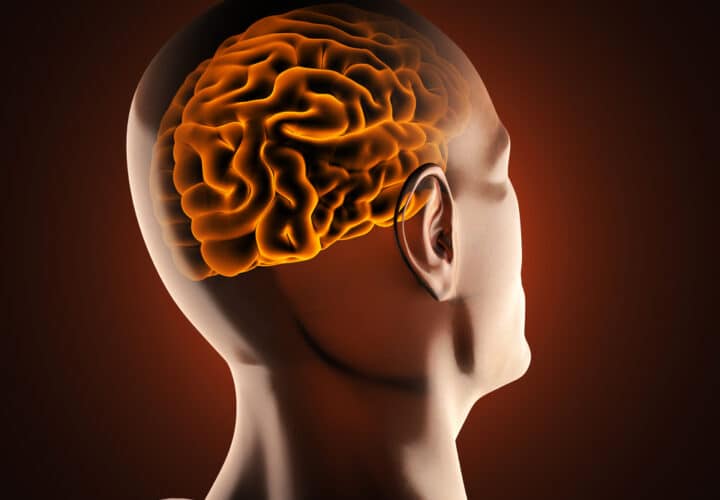It sounds like a science fiction movie: an eye scan that can provide information about your brain, and, quite possibly, your future. But according to two new studies, it could be a very real possibility soon.
Right now, the only way to diagnose Alzheimer’s is through a costly and invasive procedure like a lumbar puncture, which involves drawing cerebrospinal fluid through a needle inserted in the back, or a PET scan, which can image the amounts of beta-amyloid, the toxic protein that accumulates in Alzheimer’s. Neither are typically covered by insurance, since there is no cure for Alzheimer’s. Doctors often rely on cognitive testing and reports from family members to diagnose someone with Alzheimer’s.
But that causes a lot of misdiagnoses. In fact, a study last year found that thousands tested so far may not actually have the disease. And although there is no cure for Alzheimer’s, a correct early diagnosis can give a patient time to enroll in a clinical trial or make decisions on their future care. Likewise, those with other diseases mistaken for Alzheimer’s would benefit from disease-specific treatment.
That’s why a quick, painless eye scan could be revolutionary. With 100 million expected to develop dementia over the next 30 years, medical experts need a fast, cheap and easy way to diagnose people, especially if getting a potential drug into their hands earlier could make a difference in how the disease develops.
It’s not possible for current techniques like a brain scan or lumbar puncture to screen the number of patients with this disease. Almost everyone has a family member or extended family affected by Alzheimer’s. We need to detect the disease earlier and introduce treatments earlier.
Researchers at Duke used imaging called optical coherence tomography angiography to scan the eyes of people with Alzheimer’s, people with mild cognitive impairment (often considered a precursor to Alzheimer’s) and those of healthy people. The imaging can zero in on the tiniest vessels at the back of the eye. When they compared results between the three groups, they found that small retinal blood vessels at the back of the eye were fewer and that a specific layer of the retina was thinner in people with Alzheimer’s—changes not present in the other two groups.
“This project meets a huge unmet need,” said Dr. Sharon Fekrat, M.D., a professor of ophthalmology at Duke. “It’s not possible for current techniques like a brain scan or lumbar puncture to screen the number of patients with this disease. Almost everyone has a family member or extended family affected by Alzheimer’s. We need to detect the disease earlier and introduce treatments earlier.”
In another study, researchers in Israel compared retina and brains scans of people with a family history of Alzheimer’s (but no symptoms) to scans of people without a family history. They found that people with a history of Alzheimer’s had a thinner inner layer of retina. The hippocampus, which controls the brain’s memory and is the first place damaged by Alzheimer’s, had already begun to shrink in those with a family history. People with either a thinner retina layer or a smaller hippocampus also did worse on memory tests.
Some may question whether knowing if the signs of Alzheimer’s are present is useful when there is no cure. Most scientists agree that a drug that could stop or slow Alzheimer’s will only work in the early phases, long before most people are diagnosed. It’s important to identify those people in the event they may want to volunteer for clinical trials.
“A brain scan can detect Alzheimer’s when the disease is well beyond a treatable phase,” said lead researcher Dr. Ygal Rotenstreich, M.D., an ophthalmologist at the Goldschleger Eye Institute at Sheba Medical Center. “We need treatment intervention sooner. These patients are at such high-risk.”




Very scary stuff. My mother just died in March after a long long battle with Alzheimer’s that of course she lost. I have one apoe4, as did she. Depressing. I worry constantly.
I’d like to be a participant in this study. Paternal grandfather, uncle and father died from this cruel disease. I’m worried about my future mental health.
If this is true, when and where would one go to be tested? My family has been greatly affected by this terrible disease and my siblings and I all feel as though we live under a potential death sentence, not knowing how to properly prepare for the possibility of being unable to care for ourselves and also financially crippling a dear survivor.
I have a positive family history of ALZHEIMERS with all victims being female
This goes back four generations
Any recent research on this topic?
I have hope to participate in a study that could lead to an injection or oral Rx to help stop the buildup of plaque in the brain. A friend’s father lost his license & his personality changed such that he could not be around his wife due to angry outbursts (not his normal behavior). He was given a drug that helped him regain his former personality & ability to drive again. I don’t know the name of the prescription he takes. Also, my father suffered for over 10 years w/dementia (a form of Alzheimer’s). He suffered from severe headaches without relief despite medications. The other part of the equation is those who are charged with the care of patients living w/Alzheimer’s. Many people need to be educated on how to best deal plagued by this disease. It’s best to be patient, calm and provide a loving environment. If, like my father, would awake in the middle of the night saying he had to get to the governor’s office because of a meeting, I would simply take him outside & say it’s still dark but if you go back to bed I’ll take you to your meeting in the morning. This worked.
Can you find out name of medication please? Also, if you dont mind, what was the cost? Thank you very much!
My husband and I cared for his mother when she developed dementia, until we had to place her in memory care. She died at age 96, within about 5 years of developing dementia. ALL of our friends who’ve cared for parents with dementia have the same plan: if we develop this disease (which may also be a normal part of aging – previously called “senility”) we have made pacts with our partners/spouses to take “the pill or the pillow”. Why is the AMA against assisted suicide? Because there are literally thousands of doctors and “health care professionals” who’ve invested in long term care. This is a BIG moneymaker folks. NO ONE lives forever. IF I make it without too much suffering to 90 – I’ll be ready to have a party and not wake up at 91. See the books, “Final Exit, Knocking on Heaven’s Door, and/or Being Mortal. Ilife should be about QUALITY not quantity!